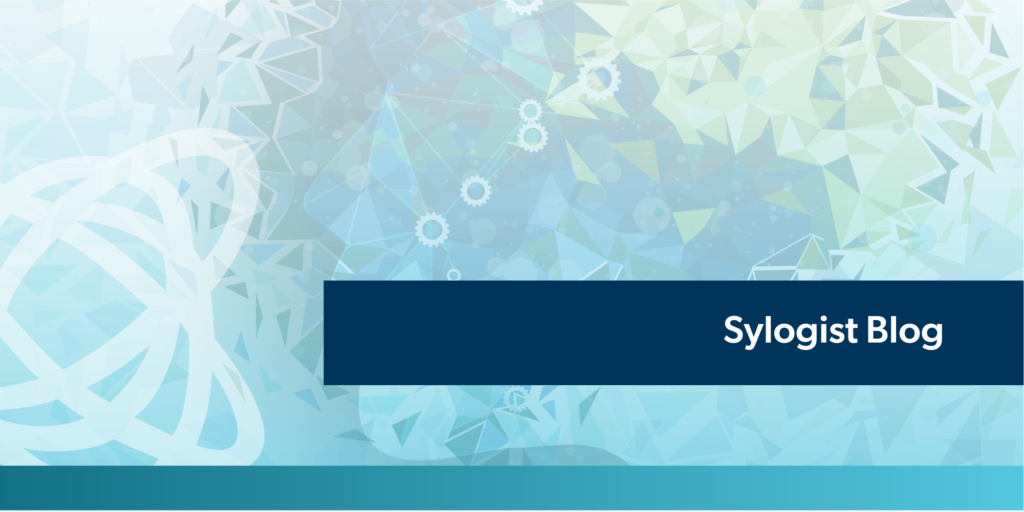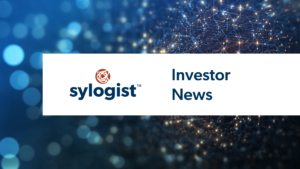Demystifying Artificial Intelligence for Nonprofits:
Why you should care about artificial intelligence for your nonprofit right now, not later

It feels like every day there are new headlines about both the benefits and the dangers of AI. Some say it will replace human workers because it can aggregate information, summarize data and provide key insights, and it learns as it goes. Others worry it’s a passing fad that could open organizations up to data breaches and eliminate actual jobs. And how, exactly, does artificial intelligence fit in for nonprofits?
In the nonprofit sector specifically, recent studies show concerning trends in staff burnout and employee turnover. In a 2024 report from the Center for Effective Philanthropy, 95% of leaders expressed some level of concern over employee burnout and 69% of respondents ranked it as “very much a concern”.**
Factors contributing to this rise include increased workloads, emotional strain from working with vulnerable populations, and the blurring of work-life boundaries, especially with the shift to remote work. The report highlights that younger employees, in particular, are experiencing higher levels of burnout, possibly due to less experience in managing stress and work-life balance.
Some leaders might want to give it some time and ensure that any new tools are properly vetted and tested. While this is understandable, a void of guidance and official policy at the top of the organization leads to employees taking things into their own hands and using AI tools without proper transparency and training. Hesitating for too long to implement new AI tools also means missing out on the benefits that come from strategic AI usage across an entire organization.
Clearly there is a lack of alignment between how employees at different levels view AI usage.
Conversely, 66% of leaders say they wouldn’t hire someone without AI skills.*
Financial Management: AI can automate financial reporting, reduce errors, and provide real-time insights into financial health.
Transparency: By automating data collection and analysis, AI enables nonprofits to create detailed and accurate reports for donors and stakeholders.
Data-Driven Storytelling: AI can analyze large datasets to identify trends and patterns, helping nonprofits craft compelling stories that highlight their impact.
Natural Language Processing: AI tools that understand natural language inputs make it easier for nonprofits to adopt and use these technologies without extensive training.
Task Automation: Automate routine tasks such as scheduling meetings, sending reminders, and managing to-do lists.
Report Generation: Generate financial reports and summaries for board meetings and donor presentations.
AI tools that leverage natural language processing make it infinitely easier for new users to start using AI tools and it allows users to personalize software to their own specific needs. This means less training and quicker implementation for all users.
AI Tools vs. AI Platforms
For nonprofit financial management, it’s ideal to find software that meets your needs for fund accounting, grant application and management, budgeting and forecasting, and reporting AND uses AI tools for data insights, content creation, and marketing.
Implementing software with AI tools is generally easier than relying on a single AI platform. Some of the factors to consider include: flexibility, specialization, and integration capabilities. AI tools are often designed to address specific tasks or problems, allowing organizations to choose and combine the best solutions tailored to their needs. This modular approach provides greater flexibility in terms of functionality and scalability, enabling organizations to adapt quickly to changing requirements and integrate new capabilities as they evolve.
Specialized AI tools offer depth and expertise in particular areas, such as natural language processing, computer vision, or data analysis. These tools are typically developed and maintained by experts in the field, ensuring they incorporate the latest advancements and best practices. By leveraging a variety of specialized tools, organizations can achieve higher performance and more accurate results than they might with a general-purpose AI platform. This specialization allows for more precise and efficient solutions, ultimately leading to better outcomes.
Integration with Other Software
Integration is another significant advantage of using multiple AI tools. Modern software development often involves complex ecosystems of interconnected services and applications. AI tools are designed to integrate seamlessly with existing systems, APIs, and workflows, facilitating smooth implementation and reducing the time and effort required for deployment. This compatibility ensures that AI capabilities can be embedded into various aspects of the organization’s operations without the need for extensive reengineering or custom development.
In contrast, a single AI platform may impose limitations in terms of adaptability and specificity. While it may offer a broad range of functionalities, it might not provide the same level of expertise or performance in every area. Additionally, a single platform might require more extensive customization to fit the unique needs of the organization, leading to increased complexity and potential implementation challenges.
Security
Using software with AI tools built in is generally better for the security of nonprofit donor data for several reasons: enhanced threat detection, improved data management, real-time monitoring, and compliance support. These AI-driven security features can offer nonprofits a more robust and proactive defense against data breaches and cyber threats, which is crucial for protecting sensitive donor information.
Enhanced Threat Detection
AI tools embedded in software can analyze patterns and behaviors to detect anomalies that may indicate a security threat. These tools can identify unusual activities, such as unauthorized access attempts or suspicious data transfers, and alert administrators in real-time. This proactive approach helps to identify and mitigate potential security breaches before they cause significant harm, ensuring donor data remains protected.
Improved Data Management
AI-driven software can help manage and secure donor data more efficiently. These tools can automate the classification of sensitive information, ensuring that donor data is stored and handled appropriately. By automating data management tasks, nonprofits can reduce the risk of human error, which is often a significant factor in data breaches. AI tools can also enforce data access policies, ensuring that only authorized personnel can access sensitive information.
Real-Time Monitoring and Response
AI tools provide continuous monitoring of the organization’s digital environment, offering real-time insights into potential security issues. This constant vigilance allows nonprofits to respond quickly to threats, minimizing the window of opportunity for attackers. AI can also automate responses to certain types of threats, such as isolating compromised systems or blocking malicious IP addresses, further enhancing the organization’s security posture.
Compliance Support
Nonprofits must often comply with various data protection regulations, such as GDPR or CCPA. AI tools can assist in ensuring compliance by monitoring and enforcing data protection policies, generating audit logs, and providing insights into compliance status. This support helps nonprofits avoid costly fines and reputational damage associated with data breaches and regulatory violations.
The Future of is Now
*Source: 2024 Work Trend Index Annual Report from Microsoft and LinkedIn
**Source: “State of Nonprofits 2024: What Funders Need to Know”
Additional resources:
Date: Tuesday, September 17, 2024
Time: 1 pm ET / 10 am PT (1 hour)
Cost: Free
Presented by:
Michelle Kocin, Digital Marketing Manager at SylogistMission
Chris Stevenson, Director of Sales for SylogistMission ERP
The nonprofit industry is at an inflection point. Nonprofit fundraisers are already using AI tools, but leaders are searching for the right path forward. According the 2024 Work Trend Index Annual Report from Microsoft and LinkedIn, the use of generative AI has nearly doubled in the last six months alone and 75% of respondents said they use AI tools to help them save time, focus on building relationships rather than administrative tasks, and enjoy their work more.
This free webinar is essential learning for every nonprofit employee, regardless of title. We’ll preview some of the ways organizations are incorporating AI tools into the software they already use. SylogistMission’s staff will help you to:
2. Preview real-world applications to increase transparency & demonstrate impact
3. Learn about the magic of natural language

About Sylogist
Sylogist provides mission-critical SaaS solutions to over 2,000 public sector customers globally across the government, nonprofit, and education verticals. The Company’s stock is traded on the Toronto Stock Exchange under the symbol SYZ. Information about Sylogist, inclusive of full financial statements together with Management’s Discussion and Analysis, can be found at www.sylogist.com.
About SylogistMission ERP
With over 30 years of experience serving nonprofit organizations, Sylogist understands the unique challenges faced by these entities. SylogistMission ERP, built on Microsoft Dynamics 365 Business Central, reflects our expertise in product development, successful implementations, and exceptional customer service. This specialized approach ensures that SylogistMission precisely caters to the distinctive requirements of nonprofit organizations, setting it apart from repurposed ERP solutions.
SylogistMission ERP offers nonprofits a comprehensive solution tailored to their unique needs, backed by the power of the Microsoft Stack and unparalleled expertise in global implementations. Contact us today to learn more about how SylogistMission can support your organization’s mission and drive meaningful change.



